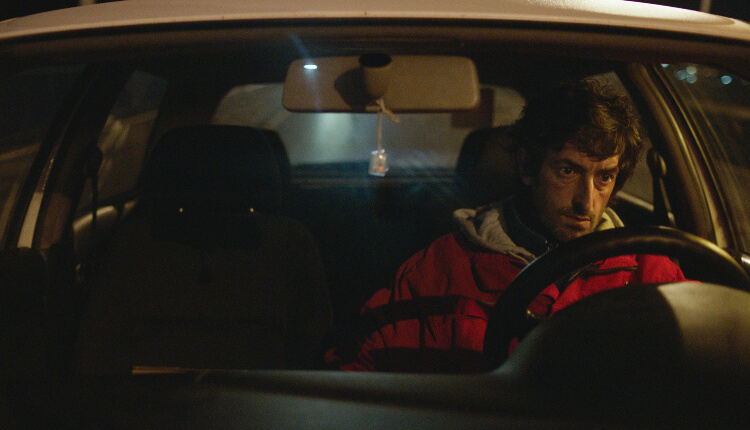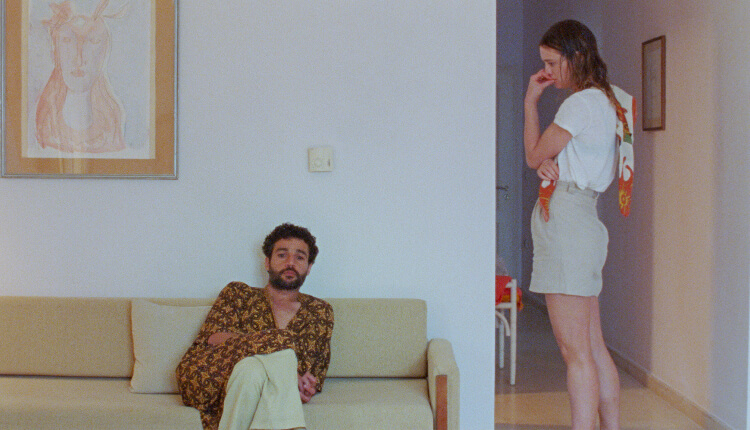Report From 2024 Rotterdam Film Festival | The Home of Quirky, Passionate and Thought-provoking Cinema
I have returned home! Well, physically, at least. My mind, along with all the money I spaffed on outrageously expensive flat whites and too many pastries, remains in the city of Rotterdam. Keep ‘em, I say!
This was my first time attending the International Film Festival Rotterdam (IFFR), which from January 25th – February 4th, 2024, celebrated its 53th edition. It’s one of the world’s major film festivals, known for its championing of experimentation and high-art. You’ll find plenty to gawk at here, from overlong arty films to mind-boggling art installations—one live performance I regret not seeing involved a man who promised to “embed himself deep inside a digitally projected ‘pop distortion’ driven by found-footage excerpts from popular culture and mass media.” I don’t know what it means either; but god, doesn’t it sound fun?
Rotterdam is a very kind city to the over-stressed festival goer: everything is within a ten-minute walk; bathroom tap water is perfectly drinkable; and their cinemas offer extremely generous legroom, god bless those Dutch giants! Talking to various festival volunteers during my time, I was surprised to learn that this year’s event was scaled back due to lack of funding. I was told previous editions saw a greater number of attendees and more cinema screens being used. Let’s hope this is a once-off and not a bleak sign of things to come. Having nothing to compare it to, myself, I found IFFR2024 to be a modest success.
Like every film festival, there’s a lot of duds to sift through—some of which I’ll speak on below—but there’s also gems to be had. Thought-provoking, passionate cinema is up for grabs for those who look hard and long enough. With the following listicle I’ll be focusing on the festival’s premiering films. There were a small handful of movies, however, I did catch that had already premiered at other film festivals last year and were still riding the circuit. These include the best films I saw at Rotterdam—Zone of Interest and Víctor Erice’s late-career masterwork, Close Your Eyes. Dublin folk can take comfort from the fact that Close Your Eyes will be screening at this year’s Dublin International Film Festival (DIFF) on March 1. It’s a colossal piece of cinema, a must-watch!
Before we dive in, I have to give a special shout-out to Frank Sweeney, the Irish filmmaker behind the the Tiger Short Competition Winner, Few Can See, which explores the late 1980s conflict in Northern Ireland through a mix of archival material and reenacted footage. Unfortunately, I didn’t see it at Rotterdam; but I’m sure, especially now with this win behind it, they’ll be plenty of opportunities to catch up with it in the near future.
La Parra

In his hometown, Damián finds a sinister TV game show that tests loyalty. Returning after his father’s death, the once-thriving Ferrol now lies in ruins but still haunts its former residents.
At the time of writing, the most liked review of La Parra on Letterboxd reads, “sack of shit no story.” Well, I’m afraid I’ll have to disagree with this incisive piece of criticism—Alberto Gracia’s La Parra is one of the strongest films I saw competing at Rotterdam. A modern ghost story in which the film itself feels haunted, its best moments are full of slippery magic. The film’s opening scene alone is worth the price of admission. It also contains a gag involving ashes which rivals that of Big Lebowski, and that’s no mean feat.
Swimming Home

The film revolves around Joe and Isabel, whose marriage is dying when Kitti, a naked stranger, is found floating in the pool at their holiday villa.
I was hyped for this. I mean, what a cast! You got Christopher Abbott, Mackenzie Davis and Ariane Labed. Sadly, the elements never come together as one would hope. Not even Coti K.’s impressive score of unnerving taps, clangs and wind instruments can provide the glue. Swimming Home is not a mess by any means, but comes off like a half-baked mish-mash of better sun-drenched films, while containing the spark and sizzle of none of them.
Flathead
Late in life, Cass is drawn to his long-forsaken childhood home of Bundaberg, where he finds himself on a spiritual search for redemption.
The plot description does not exactly scream “good time,” but I found Jaydon Martin’s feature directorial debut, in which he blurs fiction and documentary, to be quietly comedic and full of compassion. The moments I appreciated most involve Cass, our weather-beaten central subject, reminiscing over his younger years, his eyes shimmering with joy and a more than a touch of regret. Thanks to cinematographer Brodie Poole, Flathead is a beautifully-shot film. The sharp black-and-white photography really helps elevate the story, drawing our attention to Australia’s rugged and stunning landscape.
Kiss Wagon
Our hero is Isla, a one-woman parcel delivery service, who is given the task of delivering something strange to a stranger-sounding address by a Ms. Rebecca Hump. The names are everything. Pablo Escobar.
Along with Flathead, Midhun Murali’s three-hour odyssey, Kiss Wagon, was awarded a Special Jury Award. I’d be lying if I told you I understood Kiss Wagon, but I kind of dug it. It’s visually stunning but incredibly dense. My press screening saw plenty of walkouts, the most I saw at the festival, and I can’t say I really blame them. The film employs multiple narrative strands, layer upon layer, again and again, so much you can often lose your footing and have a hard time catching up.
Milk Teeth
Skalde, an outsider in her rural community, befriends a mysterious girl despite the social stigma. She hides the girl’s presence to maintain her standing with the villagers, risking everything. As tension mounts, Skalde’s loyalty to both the community and her new friend is put to the test, leading to unforeseen consequences.
Sophia Bösch’s solid directorial debut adapts Helene Bukowski’s 2021 novel of the same name. It reminded me of Ali Abbasi’s Border, from 2018, in that it imagines a world where fairy tales are treated deathly serious. Milk Teeth has a strong premise, but the story is lacking, a little too lean. Aleksandra Medianikova’s camera work is competent but the film is in need of grit and a degree of nastiness. It speaks to societal paranoia and pressures but never really explores these themes in any meaningful way.
The Ballad of Suzanne Césaire
An actress, three months post-partum, reads through fragments of the archive of Suzanne Césaire as she prepares to perform excerpts of the writer’s work.
This anti-biopic directed by Madeleine Hunt-Ehrlich might just be the best new film I saw at IFFR. The opening is sublime, it completely absorbed me and, to be honest, carried me through the few sections which didn’t quite work for me. It’s a fascinating investigation, whose lyricism and form won’t be to everyone’s taste. I found it quietly captivating, a film that turns itself inside out in order to understand “an artist who didn’t want to be remembered.” Reminded me of Wiseman’s A Couple, from last year, but Ballad is far superior, in my opinion. This definitely warrants re-watch at some point, along with catching up on Hunt-Ehrlich’s previous work.
Avant-Drag!
Welcome to Avant-Drag!, Fil Ieropoulos’ sweet and rowdy documentary following the lives of ten drag artists of varying gender expressions, sexualities and gorgeously outrageous outfits.
The film split into vignettes, shining a spotlight on each performer as they take their art out onto the streets, back to its punk roots. My favourite parts of Avant-Drag! are the little performance interludes between the portraits, usually consisting of multiple video panels on screen depicting some shocking and wonderful DIY, punk-inspired bit of business. Even if its structure becomes a tad repetitive, and the roundtable discussion that ends the film feels a little weak, Avant-Drag! is worth your time. Pitched somewhere between a cheer and a scream, you can see the love and feel the frustration. Athens, from what I can gather, seems like a crummy place filled with beautiful people.
Steppenwolf
Tamara is searching for her missing son in a small town consumed by riots and violence. In a desperate attempt to get him back, she decides to offer a reward to an amoral former investigator whose methods prove to be sadistic. Determined, Tamara decides to complete the mission with the nihilistic detective, no matter what the cost
Steppenwolf is a solid actioner which playfully blends Mad Max and The Searchers. Director Adilkhan Yerzhanov keeps a light, vicious tone throughout. He doesn’t pull off the weightier moments quite so well. Its upending of toxic masculinity in broad strokes is nearly as tired as the Drive–inspired score. Here, the music does offer a nice contrast to the film’s bleak landscape, but it feels so old-hat in 2024. Berik Aytzhanov is does good work as our Mad Max/Ethan Edwards stand-in, repugnant and charismatic.
King Baby
In a ruined palace that seems to have survived the passage of time, a King is served his complicated daily ritual by his Valet. All under the watchful eye of the Queen, played by a wooden mannequin. Each is in his role, accustomed to this routine that is as ceremonial as it is absurd… But each of them is actually envious of the other’s fate, as reflected in their dreams.
Arran Shearing and Kit Redstone’s King Baby is a pleasant slice of whimsy which has trouble sustaining itself across 91 mins. I found Graham Dickson to be particularly strong as the petulant and puny-brained King, floating somewhere between Jeremy Irons and Russell Brand. For all its willy-waving tomfoolery, I feel like the film exhausts itself in the homestretch, running in circles and out of ideas. It has things to say and big themes to explore; just none of them particularly interesting or new; but I enjoyed how it tried to articulate them.
Void
Asagi’s classmates don’t seem concerned when her friend Satake suddenly dies in a strange way: they just continue their conversations about food and karaoke. While Asagi struggles with her loss, everything around her becomes increasingly absurd.
Iwasaki Yusuke’s Void is the best short film I saw at IFFR and one of my festival highlights overall. Reminded me of Kiyoshi Kurosawa with a touch of It Follows. It’s eerie, surprisingly funny, full of confident direction and tonal control. Super promising fiction film debut from Yusuke. There’s a feature in here ready to get out. Let it out!

